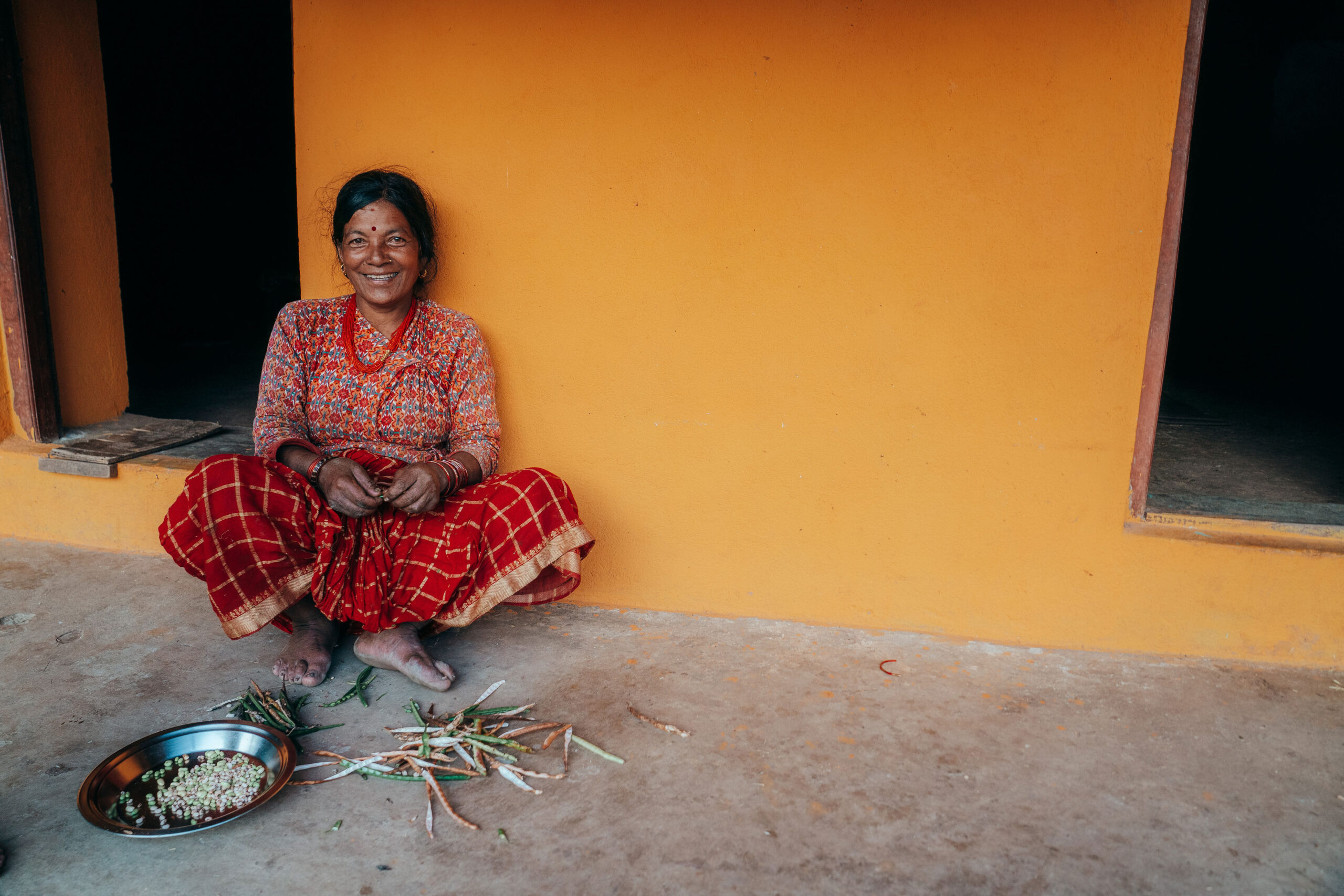How to Move Forward When All Seems Lost
Last month, I visited our projects in India and Nepal for three weeks. As always, I was awestruck by the courage and resilience of survivors. Here are just a few of the remarkable women and children I got to spend time with…
SARITA: At the age of 14, Sarita was trafficked into a brothel. Now, 20 years later, she has finally been able to get out of the sex trade by running a food truck, with help from our Red Light Resource Center project. Although the business is small, Sarita extends credit to the women and girls still working the streets, so at least they can have the comfort of a warm, nutritious meal.
PRIYA: Priya was trafficked by members of her own village, where a high percentage of girls are sold into brothels or forced into child marriages. Now she is in college, and also teaches a remedial class of eight girls and boys age 7-18, who have been rescued from dangerous or exploitative situations and have no previous education. Her own experiences give her a unique perspective for counseling and mentoring other survivors.
HASHI & KUSHI: Hashi and Kushi lived on a train platform with their mother, until she disappeared. For months, Hashi, then 6, kept her 4 year old sister alive by scavenging for food and begging from passengers, until they were finally rescued. The sisters are now growing up in a safe, loving environment at our Jalpaiguri shelter, but Hashi remains fiercely protective of her little sister.

Despite the anguish Sarita, Priya and Hashi experienced, they are able to find happiness again. This is the miracle we see everyday. Many survivors are able to access a kind of transcendent joy that I have rarely seen in other, better circumstances. They inspire others. They are the light in their families and communities.
How do people come from a place of deepest trauma to a place of such joy? Here are some things I’ve noticed about thrivers:
1. In our culture, we are heavily focused on the benefits of “talking things through” and “processing” our pain, often in a very public venue. People frequently suggest to me how healing it would be for our survivors to retell their story so it can be shared with the world. But for the girls we work with, publicly processing their pain is not the answer. There is a necessary phase of trauma counseling. But once they move past that phase, reliving their past again and again sets them back tremendously. What separates those who thrive from those who don’t is that they won’t let their past define them.
What gets them to happy is gaining a sense of control and getting on with life, moving forward. If you believe, as many people do, that being trafficked and repeatedly raped is so unbearable, so outside the realm of normal human experience that you can never recover, you will never recover. At Her Future, we emphasize instead the belief that you can recover, your life can be even better than it was. The girls live into that belief, and thrive.
2. You can’t heal the past by revisiting the past. Often, when we offer a workshop or a job training, the newly rescued girls show up in the morning upset, anxious, unable to focus. Usually it’s about a minor problem like an argument with another girl, but masking a deeper pain about what they’ve been through.
Rather than getting into an in-depth discussion about it, we hear them out briefly, and then redirect their attention to the task at hand. Accomplishing something, learning something, creating something beautiful in the present moment is profoundly healing. At the end of the day, you can always go back to your problem, but at least you have a sense of accomplishment – for that one day. And while you’re engaged in whatever you’re doing, you won’t be thinking sad, angry thoughts that lead to more sad, angry feelings.
3. Survivors feel gratitude unusually deeply. I think part of the reason these young women live in gratitude is because they don’t spend time comparing themselves to others who seem more fortunate. All they want from each day is safety and peace, not some magical ideal life. Their modest expectations of life have become their superpower.
Perhaps, the most powerful healing thing of all is working to uplift others to where you are. My greatest joy on this trip was seeing four of the young women from our jewelry center going back to the shelter where they grew up and helping me lead an arts workshop. The little girls and the recently rescued teenagers looked at them with awe, and with a glimmer of hope. “If they can become so independent, successful and whole, maybe we can too!”
– To hear more thought’s on recovering from extreme trauma, check out my TED talk on Living Heroically

